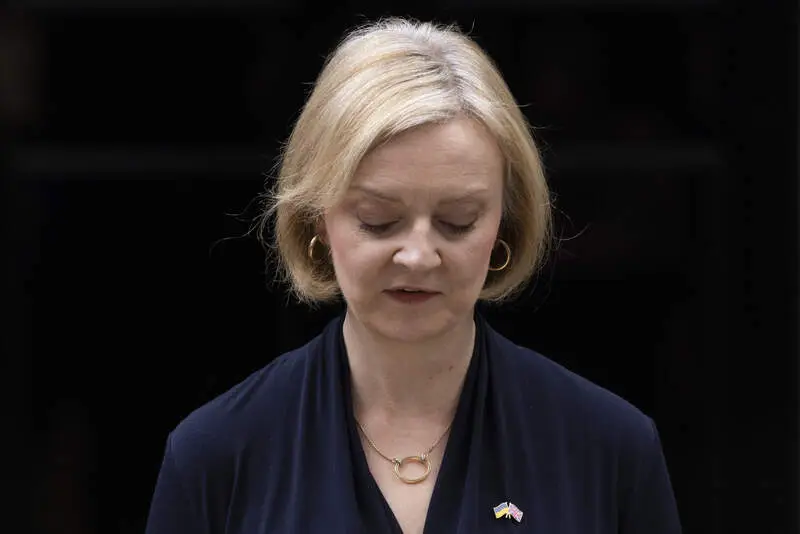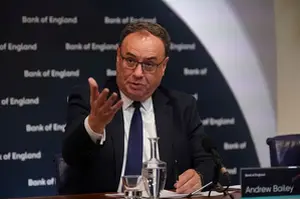
Bank of England raises its benchmark rate by 75 basis points, its biggest hike in 33 years
LONDON — The Bank of England on Thursday raised interest rates by 75 basis points, its largest single hike since 1989, but struck a dovish tone as policymakers looked to temper market expectations for further aggressive monetary policy tightening.
The 75 basis point increase takes the Bank Rate to 3%, its eighth consecutive hike to the main lending rate, after the Monetary Policy Committee voted 7-2 in favor. One member voted for a 0.5 percentage point rise while one preferred a 0.25 increase.
"The majority of the Committee judges that, should the economy evolve broadly in line with the latest Monetary Policy Report projections, further increases in Bank Rate may be required for a sustainable return of inflation to target, albeit to a peak lower than priced into financial markets," the MPC said, offering uncharacteristically specific guidance to the market.
The MPC noted that its updated projections for growth and inflation indicate a "very challenging" outlook for the U.K. economy as it looks to bring inflation back toward its 2% target. U.K. GDP is projected to decline by around 0.75% over the second half of 2022, reflecting the squeeze on real incomes from surging energy and tradable goods prices.
Growth is projected to continue to fall throughout 2023 and the first half of 2024, as "high energy prices and tighter financial conditions weigh on spending," the Bank said.
Economists had anticipated a less hawkish tone from the central bank after the change in the U.K. government. New Prime Minister Rishi Sunak's likely return to a more conventional fiscal policy after the brief and chaotic tenure of predecessor Liz Truss calmed the markets and meant that monetary and fiscal policy were no longer pulling in opposite directions.

However, inflation spiked to 10.1% in September and mortgage rates have risen sharply, placing further strain on households.
"For the current November forecast, and consistent with the Government's announcements on 17 October, the MPC's working assumption is that some fiscal support continues beyond the current six-month period of the Energy Price Guarantee (EPG), generating a stylised path for household energy prices over the next two years," the MPC said.
"Such support would mechanically limit further increases in the energy component of CPI inflation significantly, and reduce its volatility. However, in boosting aggregate private demand relative to the August projections, the support could augment inflationary pressures in non-energy goods and services."
After its emergency bond-buying intervention last month prevented the possible collapse of the U.K.'s pension fund market, in light of plunging government bond prices caused in large party by Truss' fiscal policy announcements, the Bank of England revived its plan to start selling gilts (U.K. sovereign bonds) — which commenced on Tuesday.






